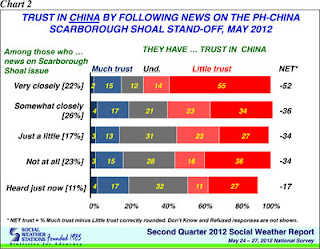The abrupt recall last month of Cambodian Ambassador Hos Sereythonh from Manila a year short of his three-year posting left shock waves in the capitals of 10 Southeast Asian nations and sparked speculation on whether the Philippines and tiny Cambodia had plunged into a serious diplomatic crisis, something like being on the brink of war.
Under diplomatic practice, envoys are relieved after an outrageous breach of protocol of civilized states, requiring urgent steps to avert armed conflict.
That was not the case when Foreign Secretary Albert del Rosario made a surprise announcement to the press last week that the Cambodian foreign ministry had sent him a letter announcing that Sereythonh had been recalled and would not be able to complete his term that was supposed to end on July 27, 2013. The letter did not give any explanation for the relief.
Last month, Del Rosario summoned Sereythonh to explain comments to a Manila newspaper blaming the Philippines and Vietnam for trying to "sabotage and hijack" the 45th Asean (Association of Southeast Asian Nations) ministerial conference, hosted by Cambodia in Phnom Penh.
The ambassador, who accused the Philippine and Vietnam of engaging in "dirty tricks," did not show up, claiming illness.
A Philippine official has claimed that during the Asean meeting, the Cambodian chair rejected at least five drafts of a joint statement that would have addressed the maritime row with China over the West Philippine Sea (South China Sea). China claims blanket sovereignty over all of the sea, but Taiwan and Asean members the Philippines, Vietnam, Malaysia and Brunei have overlapping claims on the area.
The Philippine-Cambodian row flared when Asean failed to issue a joint statement at the Phnom Penh meeting after Cambodia, perceived as an ally of China, blocked moves by the Philippines to mention the standoff between the Philippines and China at Scarborough Shoal (which the Philippines calls Panatag Shoal) in the proposed communiqué. Vietnam also wanted to include China's incursions into its waters in the proposed communiqué.
Complicating matters, Foreign Undersecretary Erlinda Basilio issued a public statement saying that Asean failed to come up with a joint statement because of Cambodia's firm position not to reflect the recent developments in the West Philippine Sea, despite the view of the majority in the Asean meeting that these events impinge on the overall security of the region. By implication, this majority view seems to hold that Asean swept these developments under the carpet because China objected to this step.
'Dirty tricks Accusation'
In response, the Cambodian ambassador sent a letter to Philippine Star, accusing the Philippines and Vietnam of "sabotaging" the Asean's official statement that shut its eyes to the aggressive Chinese incursions in the disputed areas, and engaging in "dirty tricks"—a pretty strong language to use in diplomacy.
It is not clear whether in summoning the ambassador to explain his letter to the newspaper the Department of Foreign Affairs considered the envoy persona non grata to justify his relief. What seems clear is that the Asean meeting ended fractured over the issue on the standoff at Scarborough Shoal and the Spratly Islands.
In her paper on the communiqué, Undersecretary Basilio said the Philippines sought the consensus of the 10-nation Asean on the several drafts and revisions to make the draft acceptable. But, she pointed, the Cambodian chair "consistently rejected any proposed text that mentioned Scarborough Shoal."
Singapore's Foreign Minister K. Shanmugan summed up the fiasco, saying it was a blow to Asean solidarity that "it was unable to deal with something that is happening in our neighborhood and not say anything about it."
"There is no point in papering over it. There was a consensus of the majority of countries. The role of the chair is to forge a complete consensus amongst all. But that did not happen," Shanmugan said.
In the Phnom Penh meeting, the most contentious issue boiled down to the standoff at Scarborough Shoal where fleets of Chinese fishing vessels, escorted by armed maritime ships, have swarmed the lagoons to trawl marine life and resources, while puny Philippine Coast Guard vessels stood helplessly, unable to stop the pillage of Philippine marine resources.
Armed conflict
During the past few months of the expansive incursions of Chinese expeditions, the encounters between the Chinese predators and Philippine and Vietnamese maritime authorities have increased correspondingly.
The Philippines and Vietnam have accordingly borne the brunt of these creeping penetrations of what they claim are their sovereign territories by Chinese maritime expeditions. Among the rival claimants on territories in the West Philippine Sea, they are the only two that have stood up to the Chinese expansive penetrations and blandishments.
The recent encounters have caused the think tank International Crisis Group (ICG) to warn that tensions over competing claims in the West Philippine Sea could escalate into conflict, with arms buildup among rival nations raising the temperature.
Prospects of solving the disputes "seem disturbing" after a recent failure by Asean to hammer out a "code of conduct" that would govern actions in the sea.
"Without a consensus on a resolution mechanism, tensions can easily spill over into armed conflict," the ICG said. "As long as ASEAN fails to produce a cohesive (West Philippine Sea) policy, a binding set of rules on handling the dispute claims cannot be enforced."
Inquirer















